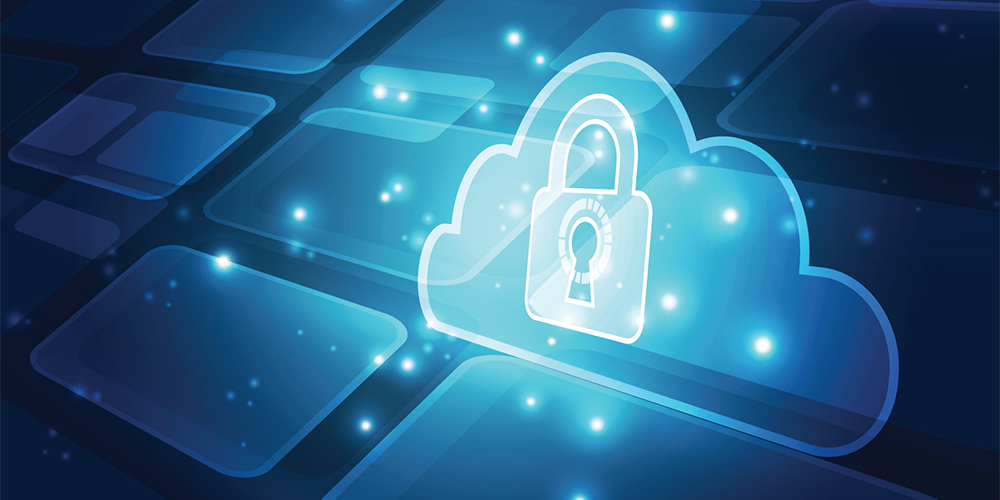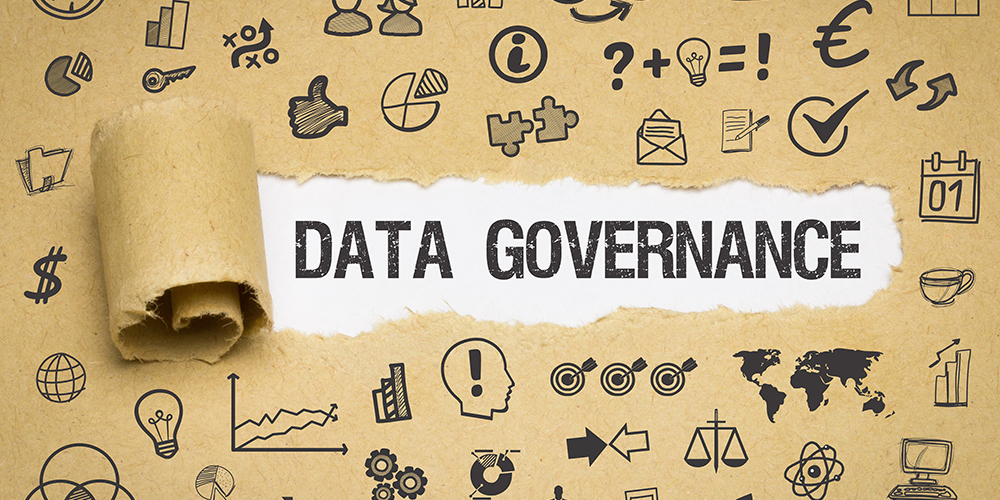
Aug 15, 2022 | SMB Technology, SMB Technology, SMB Technology, SMB Technology, Technology News
How do you know your network and your digital assets are really safe? How can you be sure? Often, it takes a cyber attack and subsequent data breach to learn that your company’s defenses are not what you thought. Read on to learn more about taking stock of your company’s cybersecurity posture to prevent a cyber attack and its damage. Review Cybersecurity Policies and Procedures One place to start evaluating your cybersecurity posture is reviewing your cybersecurity policy, which states not just your company’s stance on cybersecurity, but the ways you plan to keep your network secure and processes and procedures you will follow while pursuing business goals. A sound policy starts with general security expectations as well as roles and responsibilities within your organization. Once these are clear, more specific policies deal with guidelines for antivirus software and use of cloud applications. Other specific elements include how devices can and cannot be used, how the system can be securely accessed, and what will happen in the event of an attack, like one resulting from a phishing email. Do workers know where and how to access the company network, and where not to? What are the processes for recovering from a disaster, and how will the business continue operating if one happens? These questions are just some of many to have a definite answer to, to be sure of your ability to keep your company secure. Auditing Your Network Do you know the security of your network, and all devices connected to it? Keeping a detailed asset inventory; records of all devices–their type, model, operating...

Aug 11, 2022 | SMB Technology, SMB Technology, SMB Technology, SMB Technology, Technology News
What if your business could integrate all of its communication tools (telephony, video conferencing, chat and more) over the internet? Unified Communications as a Service (UCaaS) provides cloud computing benefits on a subscription basis, and all your company needs is an Internet connection. Read on to learn more about the benefits – and cybersecurity considerations – of Unified Communications as a Service. UCaaS and its Benefits Unified Communications as a Service (UCaaS) is a way to integrate multiple modes of communication–voice telephony, video conferencing, email, chat and file sharing – without the need to maintain on-site infrastructure. In this cloud offering, the provider furnishes the infrastructure and data centers, helping clients to convert capital expense to more manageable operating expense. Users can move from one mode of communication to another and access information to serve customers more efficiently. With cloud’s scalability, resources can be provisioned as needed according to demand. Scalability allows users to be added and removed as needed. Even with little doubt about cloud’s benefits, considerations also exist. Considerations in Using UCaaS Even with numerous benefits, a company needs to consider its own network health as well as the strength of the provider’s network. Not only that, but especially the cybersecurity standards of potential providers needs evaluation. First of all, does your provider’s network have updated antivirus and anti-malware definitions, and operating system patches? Does it have sufficient bandwidth to handle high traffic volumes at peak periods of use? Does your company’s own end-user devices have protection from viruses and malware? Even more important, do potential providers have certain cybersecurity measures in place?...

Jul 18, 2022 | SMB Technology, SMB Technology, SMB Technology, SMB Technology, Technology News
Out of the many cloud offerings on the market, Desktop as a Service (DaaS, for short) is a convenient way for your company to access computing resources virtually. Without the need for expensive infrastructure and in-house IT expertise, your workers have a variety of computing resources at their fingertips. Not only that, your company can save costs by paying just for the resources you use. Read on to learn more about Desktop as a service, and how to determine if this service is right for you. The Benefits of Desktop as a Service First of all, what is Desktop as a service? It is a cloud computing offering in which a third-party provider, such as Microsoft or Google provides virtual desktops via an Internet connection. The provider manages backed equipment and processes(servers, databases, etc.), taking that responsibility off the client’s hands. Small to medium-sized businesses wanting flexible, scalable and secure computing pay a periodic subscription-based amount based on the computing resources used. Desktop as a Service is flexible because users are provided an up-to-date operating system and productivity applications on log in. What’s more, companies can access a virtual desktop remotely and share applications and their data with other employees without effort. Business Advantages of Desktop as a Service Desktop as a Service first of all offers the primary benefit of having a provider manage and maintain the operating system and applications, along with software and security updates. All that your company needs is an internet connection to enjoy the benefits of virtual desktops. Computing resources available from anywhere, anytime. Resources can be scaled up...

Jul 12, 2022 | SMB Technology, SMB Technology, SMB Technology, SMB Technology, Technology News
Treating even employees like possible intruders may seem harsh. Yet, with so many devices connected to cloud services and the Internet, “zero trust” may be the best way to keep your company safe from cyber attacks, as it can verify each and every request for access and give workers the resources they need for their roles. Read on to learn more about how zero trust can keep your network secure while keeping you productive. The Need for Zero Trust With innovations like cloud computing come issues involved in protecting digital assets (data, applications, and more). More devices connected to the cloud (via the Internet) and also to business networks, causes the attack surface to expand. No longer can businesses assume that the security perimeter exists within company boundaries. People can connect anywhere, anytime, with the surge in remote work during the last couple of years. “Zero trust” is a way of verifying each and every request for access, and is vital to protecting a company’s digital assets. With millions of dollars and weeks of time needed to heal a breach, zero trust can save your company money, time and even reputation. Principles of Zero Trust According to the Cybersecurity Infrastructure Security Agency article, zero trust is “access to an information resource (data, applications, services) for a specified period of time, with the least possible privileges.” A primary principle of zero trust is verifying each and every access request. Questions asked involve the identity of the request, the health of the device the request comes from, and the role of the entity requesting access–so you know...

Jun 16, 2022 | SMB Technology, SMB Technology, SMB Technology, SMB Technology, Technology News
Cloud computing is used by many businesses, including small to medium-sized companies. Reasons for moving to the cloud include the desire for someone else to operate and maintain infrastructure, and to use a pay-as-you-go subscription model. In spite of the draw of cloud computing, companies need to consider what data they want in the cloud, and how that data will be managed and protected. Read on to learn more about what to consider when looking for a cloud provider Cloud Computing Offers Benefits and Raises Questions Cloud computing is often a good way to reduce infrastructure costs by accessing computing resources remotely over the Internet. Thus, a company can leave the infrastructure and its maintenance to a provider, and pay according to resources used. Depending on the service levels, some responsibility for data management may fall on your business. This provides flexibility for you and shares the responsibility with you. According to a CompTIA guide for cloud security, recent data incidents have drawn attention especially to how a CSP handles data. But amazingly, not that many companies—small to medium-sized businesses among them—do a “deep dive” in researching a provider. Commonly, company executives worry most about system outages and data breaches, which are concerns. However, with the amount of data generated by businesses, there are also the issues of data integrity, regulatory compliance, and disaster recovery. Considerations for Cloud Security A key consideration for cloud security starts with the understanding of your service level agreement (SLA). For example, you may want to keep an archive of your email for compliance reasons; if so, ensure that...

Jun 9, 2022 | SMB Technology, SMB Technology, SMB Technology, SMB Technology, Technology News
Data collection by businesses is a given, and a great deal of data is collected by a business in the process of performing its functions. In turn, it can help a business perform its role. For data to be used well, it must be of top quality, be available, and kept secure. Read on to learn more about data governance for your business. Benefits of Protecting Data Your company has many reasons to protect its data. For one thing, cyber criminals are waiting to get company data they can exploit, to put on the dark web or to design social engineering schemes. What if employee data was exposed, and used to compromise your company’s reputation, or the reputations of your customers? If a nonprofit’s donor data was leaked, their reputation would be damaged and they might even have to close. Businesses subject to data compliance regulations like HIPAA or GDPR have to pay fines for data breaches, and sustain loss of reputation as well–both things that safeguarding data can help avoid. How to Safeguard Your Company’s Data What are things a business can do to safeguard their data? First off, a company can consistently inventory its data, disposing of content it no longer needs. Along with this practice, not saving old data in general keeps exposure risks to a minimum. Instead of keeping data on multiple servers on the premises, look to secure remote data storage to keep it safe in one place. Doing a data inventory also helps you discover what personally identifying information (Social Security numbers, birthdates) or financial (credit card numbers or...







